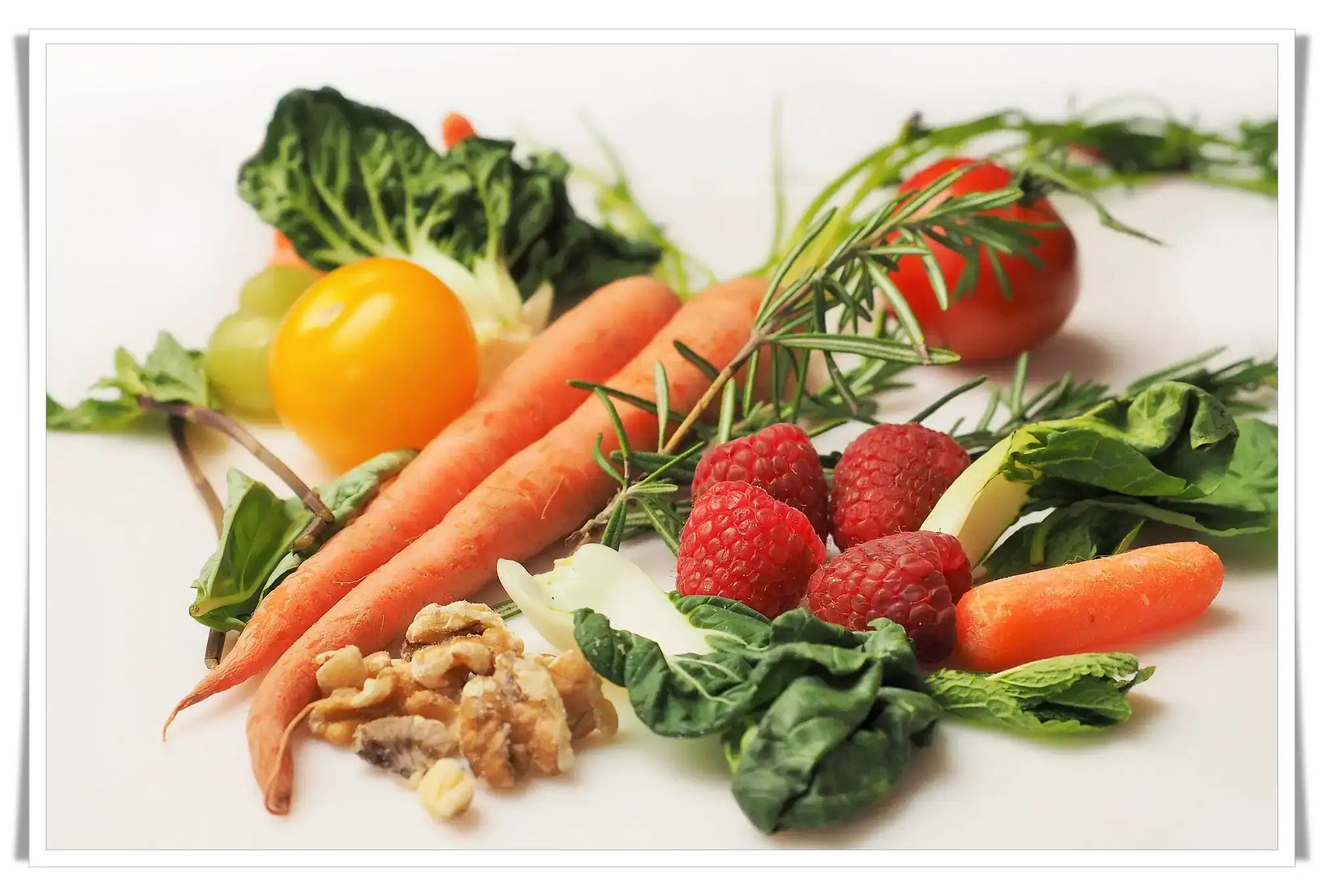Introduction
Flatulence, or excessive flatulence often referred to as passing gas or breaking wind, is a normal and unavoidable aspect of human physiology. We've all been there, amidst friends or family, when an unexpected sound (or scent) makes its debut, often accompanied by chuckles or a blush. However, as natural and occasional as these incidents might seem, they can sometimes become frequent and distressing. The real question arises - when should one start to take note of it? When does it transition from being just another harmless bodily function to a sign of something more concerning?
Empower Your Health Journey – Explore My Free Apps for a Vibrant, Healthier Lifestyle Today!
In today's discussion, I will be your guide, delving deeper into the world of excessive flatulence. Together, we'll explore its underlying causes, the various risk factors that can amplify its occurrence, and sift through the myriad of remedies that promise relief. The aim is not just to provide knowledge but to empower you with understanding. With the insights from this article, you'll be better equipped to navigate the sometimes perplexing, occasionally awkward, yet wholly natural world of flatulence. In doing so, our collective goal will be to manage, and perhaps even decrease, its frequency in our lives.
What is Excessive Flatulence? Understanding the Fundamentals
Flatulence, a term many might be familiar with, essentially signifies the release of gas from the digestive system through the rectum. It's a completely normal part of our body's operation, often accompanied by a sound and, sometimes, an odour. This gas is a byproduct of the body processing the food we consume.
Now, when we talk about excessive flatulence, we're referring to an unusually high accumulation of this gas in our gastrointestinal tract. This could lead to a frequent and sometimes uncontrollable urge to expel it, which can be inconvenient or embarrassing in social situations.

But let's break it down further.
Every day, our large intestine busily produces between 7 to 10 liters of gas. This might sound surprising, but it's a part and parcel of our body's efficient working. However, only a fraction of this gas, approximately 0.6 liters, finds its way out of our system as flatulence. The remaining gas doesn't just disappear; it gets absorbed into our bloodstream and is eventually expelled through our lungs as we breathe.
In essence, while flatulence might often be a source of humor or slight embarrassment, it's a clear indication of our body's intricate and continuous effort to keep us healthy.
Understanding the Causes of Excessive Flatulence
1. Dietary Choices: Our diet plays a pivotal role in determining the amount and frequency of flatulence we experience. Some foods are known gas producers:
- High-Fiber Foods: While fiber is essential for a healthy digestive system, certain high-fiber foods can lead to increased gas production. Vegetables like cabbage, foods such as beans, lentils, and specific dairy products can be challenging to break down in the digestive tract. As the body works harder to process these foods, it can lead to a spike in gas buildup.
- Sugary Foods: Sugars, especially those not easily absorbed in the small intestine, can travel to the colon where they ferment. This fermentation process produces gas. Hence, excessive sugar intake can be a prime culprit behind increased flatulence.
- Inadequate Hydration: Not drinking enough water can hamper the digestion process. When the body is dehydrated, it can lead to slower digestion and increased gas production.

2. Lifestyle Habits: Our everyday habits can unknowingly contribute to increased gas production:
- Swallowing Air: It might seem trivial, but the act of swallowing air, whether while eating hastily, sipping drinks, or frequently chewing gum, can introduce excess air into our digestive system. This air can accumulate and manifest as increased flatulence.
3. Medical Conditions: Underlying health conditions can have a direct impact on the frequency and amount of gas produced:
- Diabetes: This metabolic condition can influence the speed at which food is broken down and moved through the digestive tract, leading to increased gas.
- Ulcers: Open sores in the stomach or intestine can cause an imbalance in stomach acid and impede the digestion process, leading to gas.
- Irritable Bowel Syndrome (IBS): IBS affects the large intestine and can lead to a range of symptoms, including increased flatulence.
- Stress: Often overlooked, chronic stress or anxiety can disrupt the regular digestive process, leading to imbalances in stomach acid and digestive enzymes, culminating in increased gas production.
4. Complex Carbohydrates: Carbohydrates are a primary energy source for our body. However, certain complex carbohydrates are harder for the body to break down:
- Fermentation in the Gut: When these complex carbs reach the colon without being fully digested, they ferment. This fermentation process produces gas as a byproduct, contributing to flatulence.
Let's See the Risk Factors Linked to Flatulence
Flatulence, while a common physiological occurrence, can be influenced by several risk factors. Let's explore these in more depth to understand what might make someone more predisposed to experiencing increased gas.
1. Food Intake: The foods we consume directly impact our digestive system, and some can instigate gas production more than others.
- High-Fiber Foods: Fiber is an integral component for smooth digestion, but certain high-fiber foods might be harder for some people to digest. As these foods break down, they can produce gas, leading to increased flatulence. Examples include certain vegetables, grains, and legumes.
- Sugary Foods: Sugars that aren't readily absorbed in the small intestine might ferment when they reach the colon. This fermentation process can produce gases, contributing to flatulence.
- Carbonated Drinks: Beverages like sodas introduce a significant amount of gas directly into our stomach. When consumed in large quantities, these can increase the amount of gas waiting to be expelled.
2. Medical Conditions: Certain medical conditions or sensitivities can make individuals more susceptible to gas production.
- Celiac Disease: This autoimmune disorder affects the small intestine when gluten is consumed. As the intestine struggles to process gluten, it can lead to increased gas production.
- Crohn's Disease: An inflammatory bowel disease, Crohn's can cause inflammation throughout the digestive tract, leading to symptoms like pain, diarrhea, and increased flatulence.
- Lactose Intolerance: People with lactose intolerance lack sufficient enzymes to digest lactose, a sugar found in milk and dairy products. When undigested lactose ferments in the colon, it produces gas.

3. Behavioral Factors: Our habits and behaviors, often unconsciously done, can introduce more air into our digestive system or affect its normal function.
- Rapid Eating: Eating too quickly can result in swallowing more air, which then needs to be expelled. Taking the time to eat slowly and chew thoroughly can reduce the amount of air swallowed.
- Smoking: Inhaling while smoking introduces more air into the digestive system. Over time and with frequent smoking, this can contribute to increased flatulence.
- Excessive Gum Chewing: Chewing gum not only introduces sweeteners that can ferment in the gut but also causes us to swallow more often and potentially ingest more air.
Table: Differential Diagnosis of Excessive Flatulence and Bloating
| Category | Conditions |
|---|---|
| Mechanical Obstruction | Gastric outlet obstruction <br> Small intestinal obstruction <br> Superior mesenteric artery syndrome <br> Colonic obstruction <br> Volvulus |
| Carbohydrate Intolerance | Lactase deficiency <br> Intolerance of poorly absorbed sugars <br> Hereditary disorders <br> Intolerance of complex carbohydrates and fiber <br> Secondary causes of carbohydrate intolerance |
| Small Intestinal Bacterial Overgrowth | Small intestinal stasis <br> Hypochlorhydria <br> Immunodeficiency <br> Coloenteric fistula <br> Coprophagia <br> Elderly patients |
| Irritable Bowel Syndrome | IBS |
| Dysmotility Syndromes | Gastroparesis <br> Rapid gastric emptying <br> Gas-bloat syndrome after fundoplication <br> Chronic intestinal pseudo-obstruction <br> Slow transit constipation <br> Acute adynamic ileus <br> Acute colonic pseudo-obstruction |
Zooming In on Effective Remedies and Solutions for Flatulence
Flatulence, while often brushed off as a simple inconvenience, can have a substantial impact on one's comfort and quality of life, especially when experienced excessively. To address this, there are several remedies and solutions available:
1. Dietary Adjustments: The foods we consume play a vital role in our digestive health and the amount of gas our bodies produce.
- Beneficial Foods: Introducing certain foods to your diet can help reduce gas and bloating. Foods like cucumbers, bananas, and kiwi are not only nutritious but can also help ease digestive discomfort. These foods are easier on the stomach and less likely to cause excessive gas buildup.
1. Cucumbers: Often seen as a refreshing addition to salads and dishes, cucumbers offer more than just a cool crunch. Their high water content aids in hydration, which can be crucial for smooth digestion. Additionally, cucumbers contain an anti-inflammatory flavonol called "fisetin" which plays a role in promoting brain health. While they are composed mostly of water, the solid part of cucumbers is fibrous but gentle on the stomach, making them less likely to cause gas.

2. Bananas: A popular fruit worldwide, bananas are rich in potassium, which can help balance sodium levels and reduce bloating caused by salt. Moreover, they are a source of soluble fiber, which aids in the smooth passage of food through the digestive tract. Another key component of bananas is pectin, which can help normalize the movement of the intestines, hence preventing constipation and reducing gas buildup.
3. Kiwi: This vibrant green fruit is not only visually appealing but also packed with actinidin, an enzyme that aids in breaking down protein, facilitating better digestion. Kiwi is also rich in fiber, which promotes regular bowel movements, reducing the chances of constipation and subsequent gas. Moreover, the vitamin C and antioxidants in kiwi support overall gut health.
Table: Beneficial Foods for Easing Digestive Discomfort
| Food | Key Components | Benefits |
|---|---|---|
| Cucumber | - High water content <br> - Anti-inflammatory flavonol | - Aids hydration for smooth digestion <br> - Gentle on the stomach |
| Banana | - Potassium <br> - Soluble fiber <br> - Pectin | - Balances sodium levels <br> - Promotes smooth passage in the digestive tract |
| Kiwi | - Actinidin enzyme <br> - Fiber <br> - Vitamin C | - Aids in protein digestion <br> - Supports regular bowel movements |
| Ginger | - Gingerol | - Reduces nausea <br> - Aids digestion and reduces gas |
| Fennel Seeds | - Essential oils <br> - Fiber | - Reduces gas and bloating <br> - Promotes smooth digestion |
| Papaya | - Papain enzyme | - Helps in breaking down proteins <br> - Eases stomach discomfort |
| Peppermint Tea | - Menthol | - Relaxes stomach muscles <br> - Reduces bloating and gas |
- Herbal Teas: Some herbal teas are renowned for their digestive benefits. Mint tea, for instance, can soothe an upset stomach and reduce gas production. Chamomile tea, on the other hand, has anti-inflammatory properties that can help alleviate digestive discomfort, making it another excellent choice for those looking to curb flatulence.
2. Medical Treatments: Sometimes, the root cause of excessive flatulence may be deeper than just diet or lifestyle.
- Consultation: If one has made considerable dietary and lifestyle changes and still experiences frequent and uncomfortable gas, it may be time to consult a healthcare professional. They can provide insights into potential underlying conditions and recommend targeted treatments.
- Prescribed Medications: Depending on the diagnosis, a doctor might suggest over-the-counter or prescription medications that can help reduce gas or address the underlying issue causing it.
3. Lifestyle Changes: Simple behavioral modifications can significantly influence our digestive health.
- Mindful Eating: Eating slowly and taking the time to thoroughly chew food can help in two ways. First, it can reduce the amount of air swallowed, and second, it ensures that food is better digested, leading to less fermentation and gas in the gut.
- Kick the Smoking Habit: Beyond its other health risks, smoking also introduces excess air into the digestive system. Quitting or reducing the frequency can help lessen the occurrence of flatulence.
4. Digestive Enzymes: Digestive enzymes are naturally produced by our bodies to help break down the food we eat. For those who might be deficient or require additional support:
- Supplementation: Over-the-counter enzyme supplements can be beneficial. They assist in breaking down complex sugars, proteins, and fats, ensuring they don't ferment in the gut. This can lead to reduced gas production and a more comfortable digestive experience.
Frequently Asked Questions about Flatulence and Excessive Flatulence
1. Is flatulence a sign of a serious medical condition?
Flatulence in itself is a natural physiological process and usually not an indicator of a grave medical condition. However, if excessive flatulence is accompanied by other symptoms such as severe abdominal pain, unexplained weight loss, or blood in the stool, it might be indicative of underlying health issues. Flatulence causes, in such cases, could be linked to conditions like irritable bowel syndrome, celiac disease, or Crohn's disease. Always remember, when in doubt or concerned about your health, it's vital to consult with a medical professional to understand the flatulence risk factors specific to your situation.
2. Can stress cause excessive flatulence?
Absolutely. Stress has a profound effect on various bodily functions, including digestion. When the body is under stress, it may produce more stomach acid, which can lead to imbalances in the gut flora and affect the normal digestive process. This can result in the fermentation of undigested food residues, leading to more frequent gas elimination or flatulence. Managing stress through techniques like meditation, exercise, or seeking professional help can potentially alleviate some of the digestive symptoms, including excessive flatulence.
3. What dietary changes can help reduce excessive flatulence?
Making thoughtful dietary choices is one of the most effective ways to manage flatulence. Foods like cucumbers, bananas, and oranges are not only nutritious but also gentle on the stomach, helping to reduce digestive discomfort. On the other hand, high-fibre foods, while beneficial for digestion in general, can sometimes lead to gas buildup, especially in individuals sensitive to them. Similarly, excessive consumption of sugary foods or drinks can result in fermentation in the colon, leading to flatulence. A balanced diet that considers these flatulence remedies, focusing on foods that aid digestion and avoiding potential triggers, can make a significant difference in managing and reducing flatulence.
Table: References on Excessive Flatulence
| Source | Brief Description | Link |
|---|---|---|
| Mayo Clinic | An overview of gas and gas pains, including causes and treatments. | Visit Website |
| National Institute of Diabetes and Digestive and Kidney Diseases (NIDDK) | Detailed information about symptoms, causes, and prevention of gas in the digestive tract. | Visit Website |
| Medical News Today | An article discussing foods that can cause or prevent flatulence. | Visit Website |
| Healthline | A comprehensive guide about excessive gas and its potential causes. | Visit Website |
Conclusion
Flatulence is a part of human nature. However, excessive flatulence can impact our quality of life and might indicate underlying health conditions. If you're concerned about your symptoms, consult a specialist. Remember, the food we eat, our habits, and our health can all influence our gut health. For further insights on diet and health, do check out the article “The Sweet Sabotage: How Various Sugars in Ultra-Processed Foods Impact Your Health” and my YouTube video “The Best Tips To Avoid Bloating”.
Now, let's discuss! Have you experienced excessive flatulence? What remedies have worked for you? Leave a comment below, and let's engage in a productive conversation.





A lot of useful information was communicated. Please accept my sincere gratitude for making this knowledge available to me; I found it to be extremely fascinating and educational. In continuation Please accept my gratitude. Quite lovely.
This is really interesting, You’re a very skilled blogger. I’ve joined your feed and look forward to seeking more of your magnificent post. Also, I’ve shared your site in my social networks!
There is definately a lot to find out about this subject. I like all the points you made
I do trust all the ideas youve presented in your post They are really convincing and will definitely work Nonetheless the posts are too short for newbies May just you please lengthen them a bit from next time Thank you for the post
Thank you for the informative post. It was rather entertaining. It appears that you have progressed to a much more agreeable level. How can we stay in touch, though?
I had a great time with that, too. Despite the high quality of the visuals and the prose, you find yourself eagerly anticipating what happens next. If you decide to defend this walk, it will basically be the same every time.
I do trust all the ideas you’ve presented in your post. They are really convincing and will definitely work. Nonetheless, the posts are too short for newbies. May just you please lengthen them a bit from next time? Thank you for the post.
helloI really like your writing so a lot share we keep up a correspondence extra approximately your post on AOL I need an expert in this house to unravel my problem May be that is you Taking a look ahead to see you
It was great seeing how much work you put into it. Even though the design is nice and the writing is stylish, you seem to be having trouble with it. I think you should really try sending the next article. I’ll definitely be back for more of the same if you protect this hike.
It was great seeing how much work you put into it. Even though the design is nice and the writing is stylish, you seem to be having trouble with it. I think you should really try sending the next article. I’ll definitely be back for more of the same if you protect this hike.
It was great seeing how much work you put into it. Even though the design is nice and the writing is stylish, you seem to be having trouble with it. I think you should really try sending the next article. I’ll definitely be back for more of the same if you protect this hike.
I loved even more than you will get done right here. The picture is nice, and your writing is stylish, but you seem to be rushing through it, and I think you should give it again soon. I’ll probably do that again and again if you protect this hike.
This is a really good place to read, and I’ve bookmarked it for later. I’m curious how much effort goes into making a webpage this excellent and instructive.
Just wish to say your article is as surprising The clearness in your post is just cool and i could assume youre an expert on this subject Fine with your permission allow me to grab your RSS feed to keep updated with forthcoming post Thanks a million and please keep up the enjoyable work
Wow, superb blog structure! How lengthy have you ever been blogging for?
you make blogging look easy. The overall glance of your web site is wonderful, as smartly
as the content material! You can see similar: sklep online and here e-commerce
If some one desires to be updated with hottest technologies
after that he must be pay a quick visit this website and be up
to date all the time. I saw similar here: e-commerce
and also here: sklep online
Bu yazıyı okuduktan sonra konuyla ilgili daha bilinçli hissediyorum. Yazarın net ve açık ifadeleri sayesinde karmaşık konuları daha iyi anlamamı sağladı. | İstanbul Kırlent Yıkama
order lipitor 20mg lipitor 80mg oral order atorvastatin 40mg online cheap
Tina Fey Hair | Your dedication to providing valuable content is admirable. Thank you for your hard work.
At this time it appears like Expression Engine is the top blogging
platform available right now. (from what
I’ve read) Is that what you are using on your blog?
I saw similar here: Najlepszy sklep